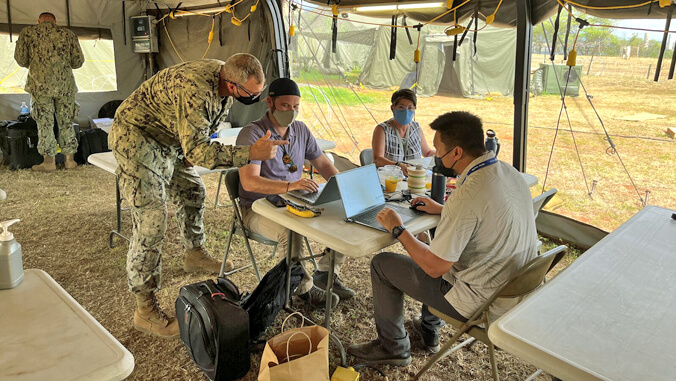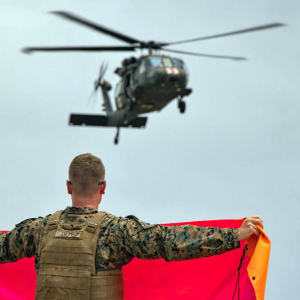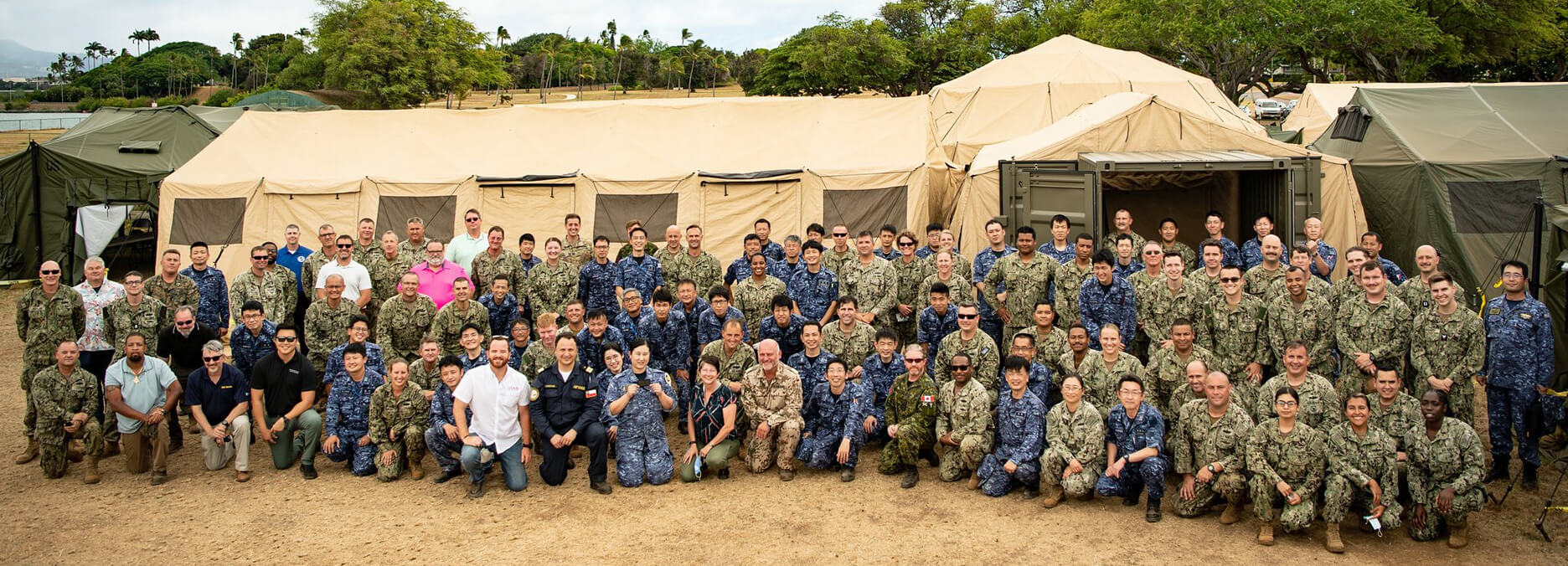
Pacific Disaster Center (PDC), provided technical assistance and expertise during the world’s largest international maritime exercise, known as Rim of the Pacific or RIMPAC, which was held around Hawaiʻi this summer. In partnership with the United States government and militaries from 26 other countries, international nongovernmental organizations and interagency partners, PDC, a University of Hawaiʻi applied science and research center, assisted with the humanitarian assistance and disaster relief portion of the exercise.

PDC helped simulate large-scale impacts to fictitious islands in the Pacific Ocean—requiring coordination of foreign military aid and relief from international nongovernmental organizations. Support included scenario development and realistic simulation of a Category 4 hurricane using the center’s DisasterAWARE platform, which provides real-time situational awareness and a common operating picture with built-in modeling, collaboration tools and real-time analytics to support effective decision making.
“PDC’s response expertise and DisasterAWARE system were an integral part of the exercise—supporting a coordinated approach to preparedness, response and recovery,” said PDC’s Director of Global Operations Erin Hughey.
This year’s RIMPAC exercise involved 38 surface ships, four submarines, nine national land forces, 170 aircraft and more than 25,000 personnel. The humanitarian assistance and disaster relief portion of the exercise included the U.S. Army, U.S. Navy, U.S. Coast Guard, Japan Maritime Self-Defense Force, the Republic of the Korea Navy, Royal Canadian Navy, Royal Australian Navy and the Chilean Navy.
Additionally, the exercise received support from subject matter experts from the International Federation of Red Cross and Red Crescent Societies, United Nations Office for the Coordination of Humanitarian Affairs, U.S. Agency for International Development (USAID), Center for Excellence in Disaster Management, and Changi Regional Humanitarian Assistance and Disaster Relief Coordination Centre from Singapore.
Tremendous value

“Having PDC’s Disaster Services Analyst Kalei Miller present to support the realism of the exercise by demonstrating PDC‘s capabilities and expertise, in-person and remotely, was a tremendous value add throughout the entire exercise planning cycle in ensuring the success of the exercise,” said Shawn Sippin, humanitarian assistance advisor to the Military Civil-Military Operations Division for USAID’s Bureau for Humanitarian Assistance.
Sippin said PDC‘s contributions afforded the participants an opportunity to get hands-on experience integrating cutting-edge disaster risk-reduction technology into their internal planning processes using the DisasterAware system throughout the humanitarian assistance and disaster relief portion of RIMPAC.
“Partnerships between USAID’s Bureau for Humanitarian Assistance and PDC in exercises such as RIMPAC demonstrate potential for the strategic use of PDC‘s resources in both future steady state [disaster risk-reduction] activities and ongoing emergency humanitarian responses for USAID throughout the globe,” Sippin said. “I look forward to future opportunities to collaborate with the PDC team in the future.”
National objectives overlap
RIMPAC exercises occur biennially on even years in Honolulu and have been taking place since 1971. They are designed to sustain cooperative relationships that are critical to the safety of sea lanes and security across the world’s interconnected oceans.
“This is how we find the areas where our national objectives overlap, where we can practice the procedures that will help to enable our interchangeability—the nexus of national will and interoperability,” said Vice Admiral Michael Boyle, RIMPAC 2022 commander.
PDC anticipates continued participation in future RIMPAC exercises and plans to integrate lessons learned from this year’s activity into its long-term training and development program. According to PDC, these developments provide ongoing benefit to more than 70 partner nations, and tens of thousands of disaster management practitioners using its free DisasterAWARE platform globally.


